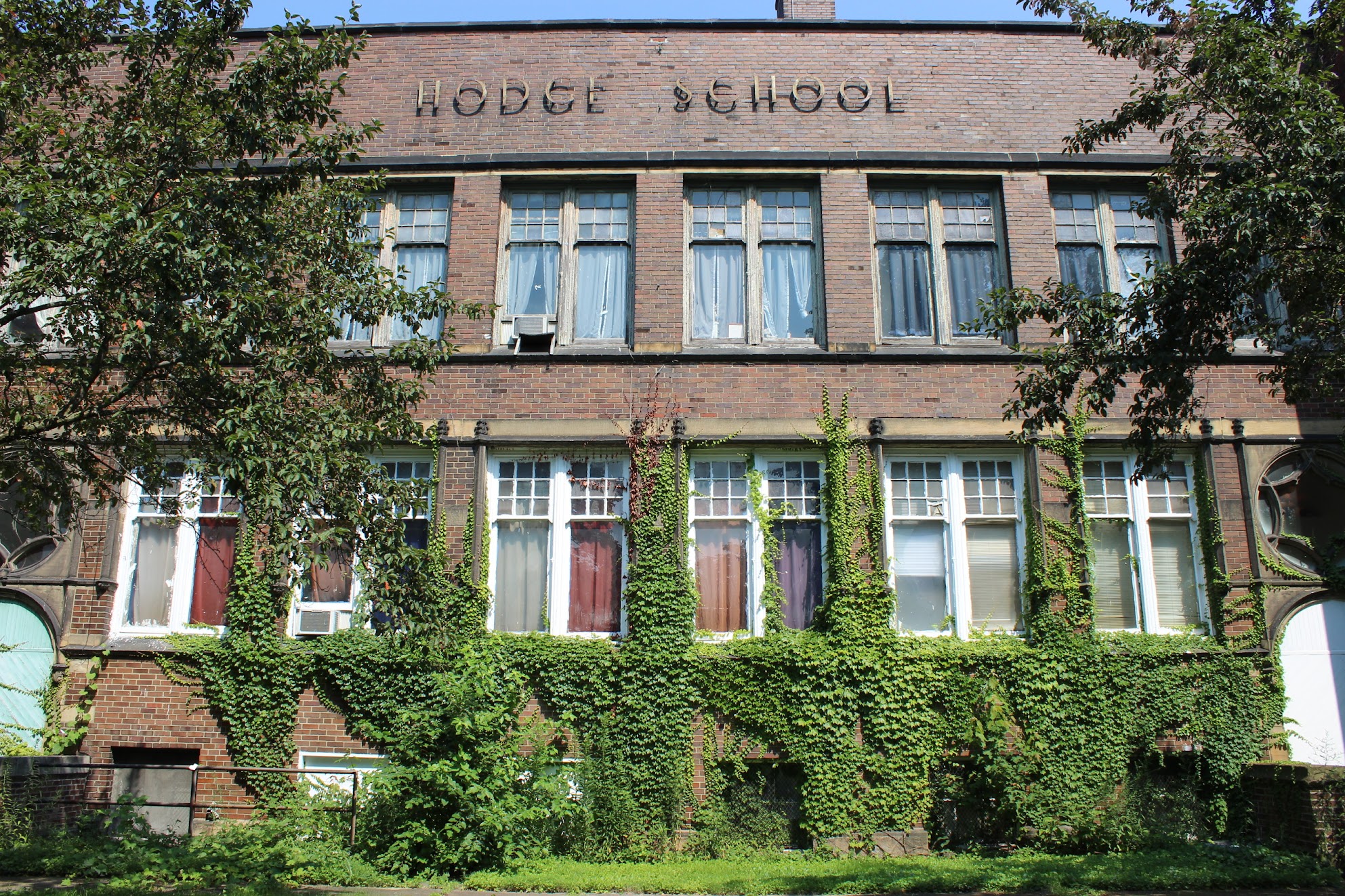

"The Hodge" tells the stifled story of Cleveland artists stimulating change through their artistic platforms, exposing injustices and uncorking stories of gentrification, systemic racism, and institutional borders segregating Cleveland.
A Story of Art, Resistance, and Community
"The Hodge" tells the stifled story of Cleveland artists stimulating change through their artistic platforms. This documentary's primary aim is to expose the gross injustices that occur within the walls of The Hodge School Studios; the exposure will help the artist-tenants fight for their right to live and create in a safe space.
In highlighting the artwork of these Cleveland artist-tenants, the documentary's secondary aim is to uncork the stories of gentrification, systemic racism, and other institutional borders segregating Cleveland.
"From decay, we inspire new growth and possibilities. This documentary constantly juxtaposes beauty with rot. The beauty that lies within the seemingly-abandoned walls of the Hodge inspires innovation."
The documentary follows Lolita Wilson, the longest tenant living at the Hodge, as she endures significant life challenges while living in the building. Her battles exemplify her revolutionary approach to the struggle against gentrification, addiction, and other institutional barriers.

A Century of Change
From Temple of Learning to Monument of Neglect
Trace the transformation of The Hodge through decades of Cleveland's history.
A Temple of Learning
The Hodge was built as an elementary school with open-air classrooms to let in natural light and fresh air—a progressive idea that symbolized hope and equal opportunity.
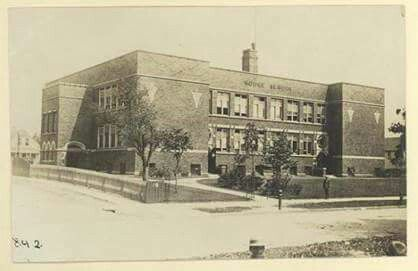
Industrial Growth & Migration
Cleveland attracted Black migrants from the South with the growth of steel mills and railroad jobs, changing the city's demographic landscape.
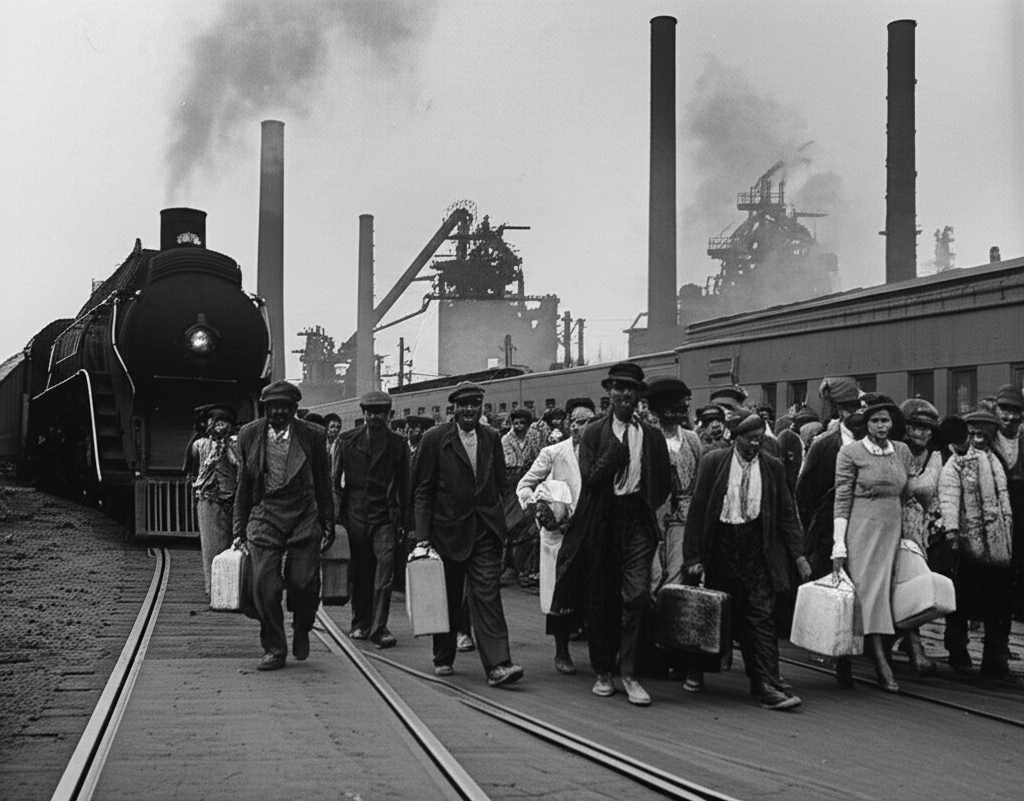
White Flight & School Closures
After the Civil Rights Act, Voting Rights Act, and Housing Rights Act passed in 1964, Cleveland experienced white flight. Resources were reallocated to wealthier neighborhoods, leading to the closure of 248 schools.
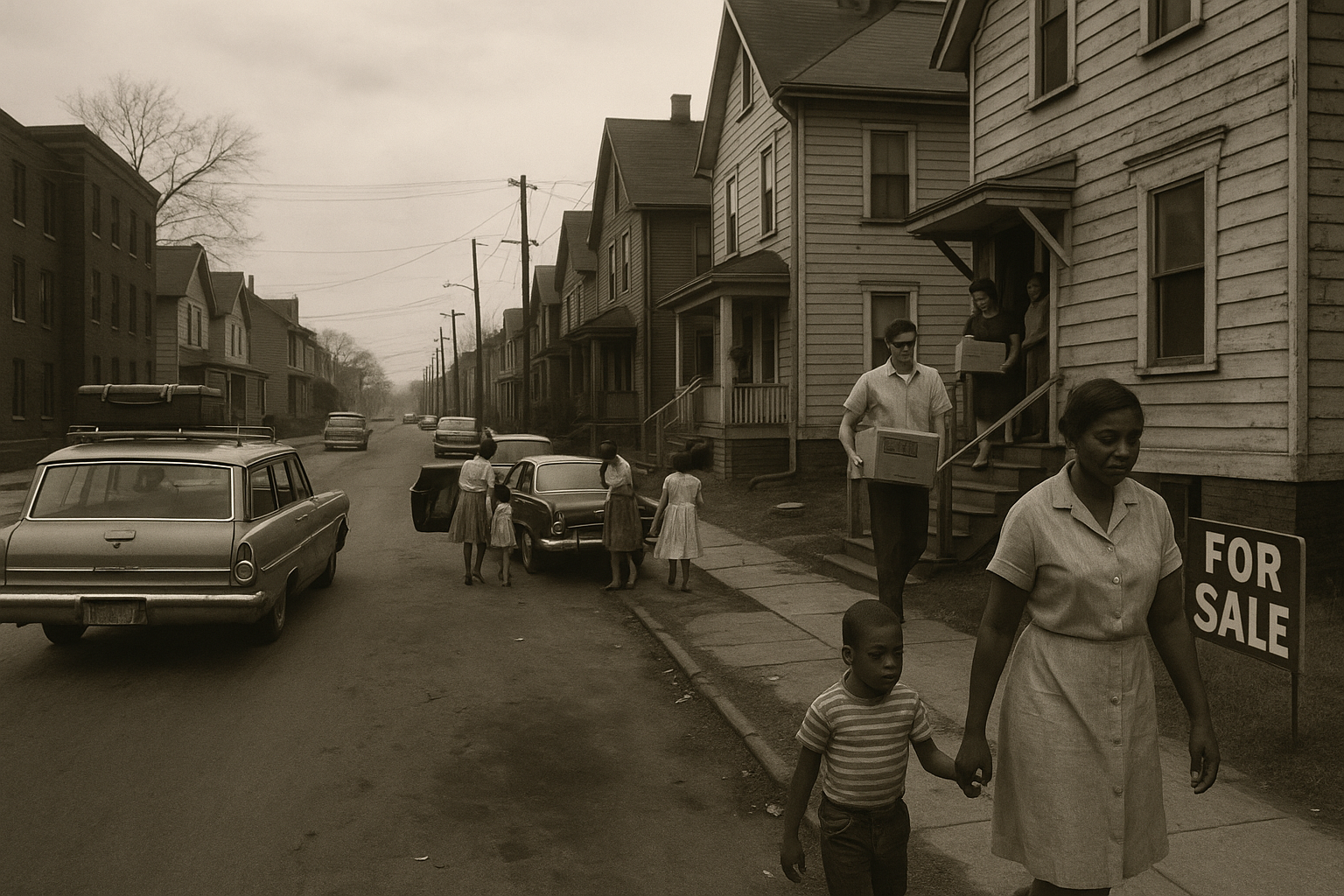
Survival Amid Abandonment
The Hodge survived the demolition of abandoned schools and became one of the last of its kind, standing as a reminder of the city's educational past.

Artistic Rebirth
The building was repurposed into an artist live/work space. Its early years were successful and drew attention from upper class residents.

Decline & Neglect
As years passed, the Hodge became vulnerable to predatory investors. Management kept changing hands, and inherited problems were never resolved and got worse.

Artists Under Threat
Today, Lolita is one of four artists who still live in The Hodge for its original purpose: to serve as an education-based institution that houses tomorrow's leading innovators.

Reclaiming Community Ownership
Lolita's ultimate plan is to own the Hodge and disperse ownership among community leaders and changemakers invested in returning the Hodge to its former glory as a cultural and educational hub.
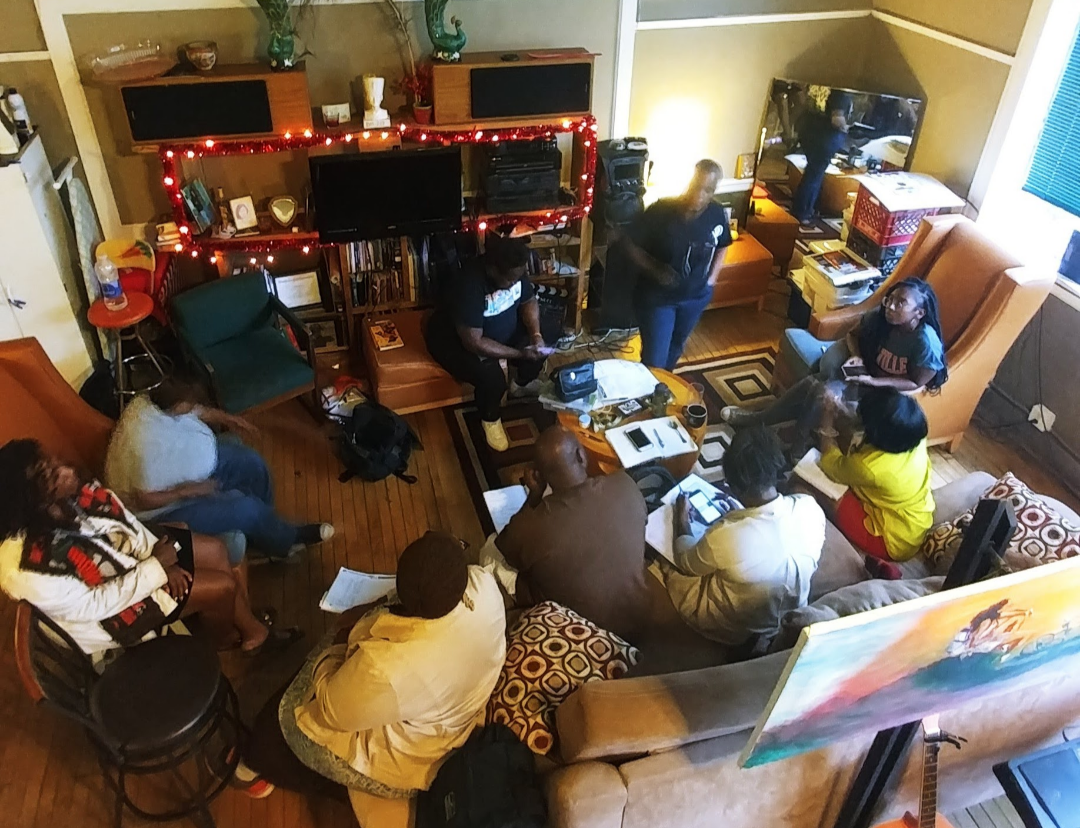
The Visit Arts Collective
Visionaries Creating at the Intersections
Meet the artists whose work speaks directly to deep-rooted socio-political issues while transforming decay into beauty.
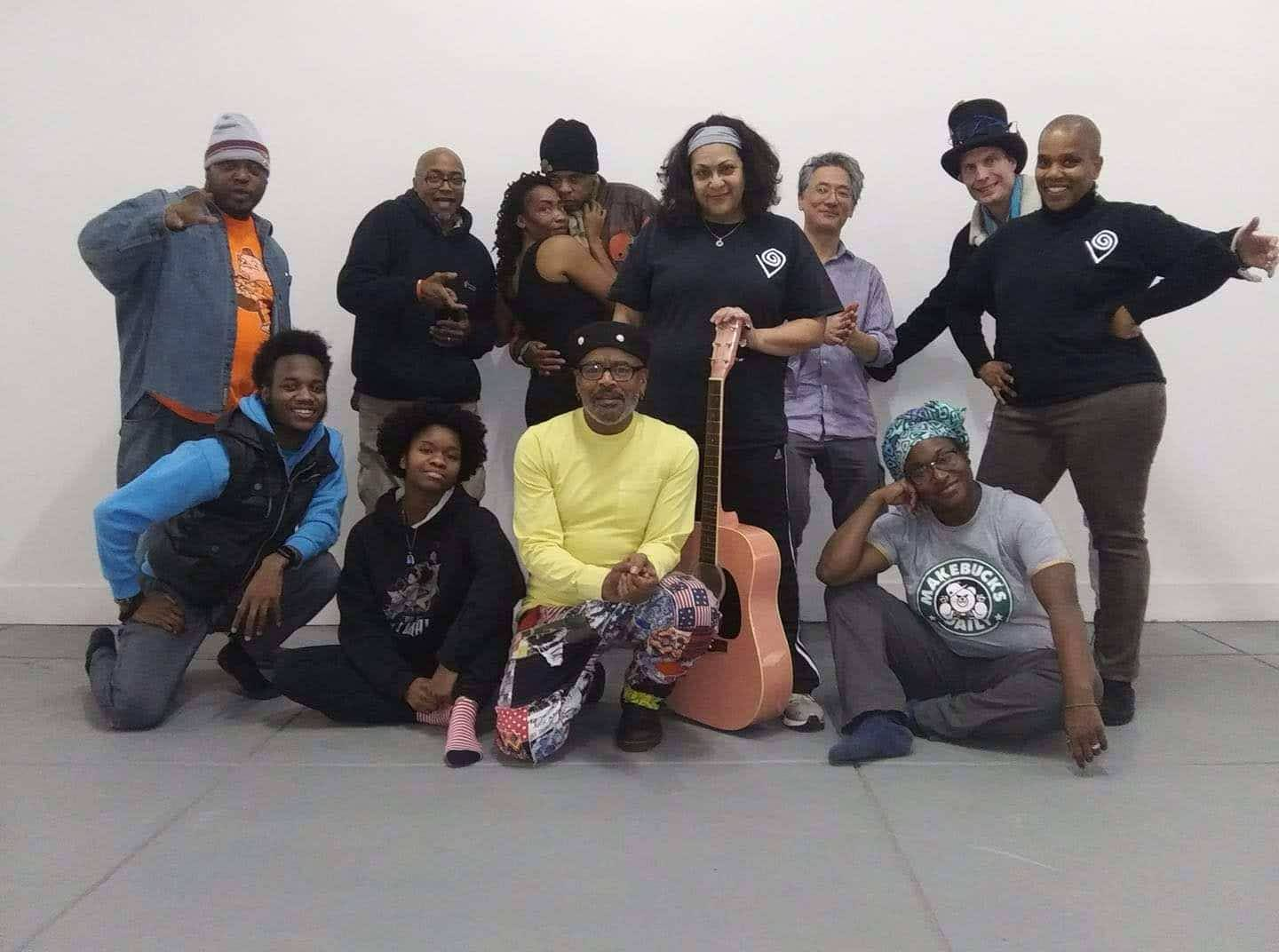
The Visit Arts Collective
A community of artists united in their mission to transform abandoned spaces into vibrant galleries and create art that addresses social issues.
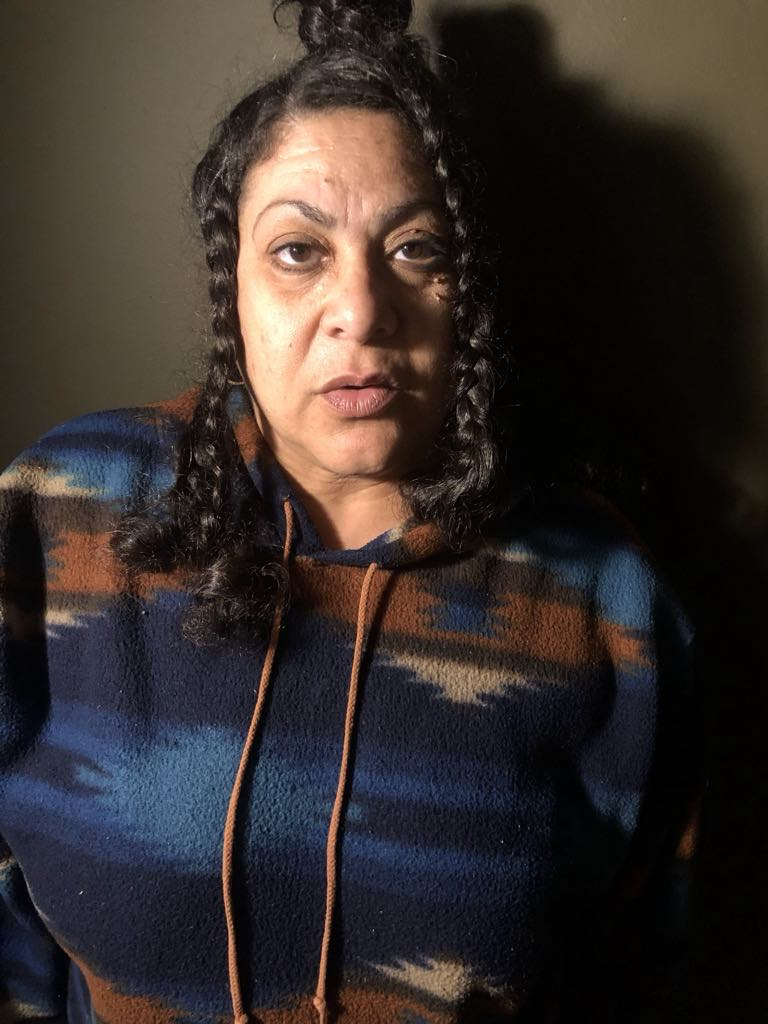
Lolita Wilson
Multimedia Artist & Activist
The longest tenant living at the Hodge, Lolita has become the building's heartbeat. She endures significant life challenges while living in the Hodge, exemplifying a revolutionary approach to the struggle against gentrification, addiction, and other institutional barriers.
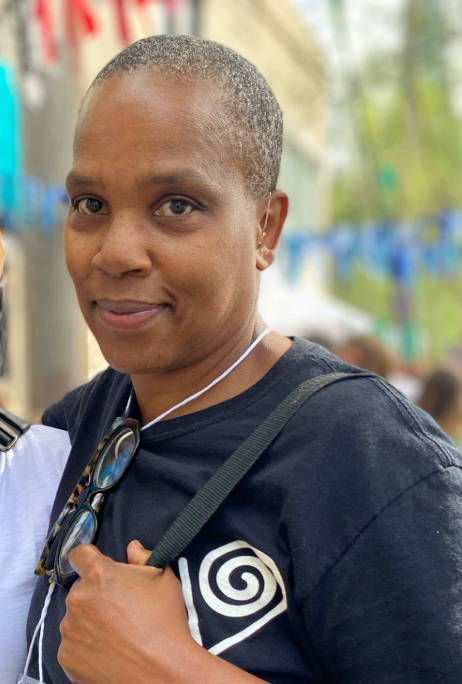
Gina Washington
Visual Artist
A member of 'The Visit Arts Collective,' Gina creates art that speaks directly to deep-rooted socio-political issues. Her work has been featured throughout the lower southeast side of Cleveland and globally.

Chester Hopkins-Bey
Multidisciplinary Artist
As part of 'The Visit Arts Collective,' Chester brings a unique perspective to the group. His powerful poetry, including 'Destination Destiny,' captures the themes of struggle and hope that define The Hodge's story.

Kole Robinson-Brooks
Artist & Community Organizer
A visionary based in Cleveland working and creating at the intersections, Kole fashions incredibly innovative art that reflects potential solutions to modern issues regarding sustainability and the housing crisis.
"The Visit Arts Collective" transforms the rooms of abandoned houses into art galleries for a day through their annual show, "Rooms To Let." They take decay and transform it into beauty, creating innovative visions that address today's cultural, societal, and environmental issues while posing potential solutions.
Ogechi Musa's Artistic Approach
"As a director and writer, I observe and reflect my surroundings. A key part of my creative process is listening. I ask questions, engage in conversations, and learn from the environment housing my work. My creative process is rooted in empathy."
Ogechi Musa is a Nigerian American conscious storyteller who writes, directs, acts, and self-produces untold stories. Her filmmaker mission is to evoke empathy by increasing representation in media both in front of the screen and behind it. She strives to celebrate the global majority and combat global oppression in a beautifully cinematic fashion.
Cinematic Elements
Cinema Verite Style
Following the characters in a realistic approach to immerse viewers in their perspectives and evoke empathy. The audience will experience the full complexities of the characters' lives and feel as if they've become a part of each character's family.
Visual Juxtapositions
Contrasting the wealthier, greener neighborhoods of Cleveland with abandoned, dusty neighborhoods to highlight the stark contrasts throughout Cleveland's physical landscape and raise awareness around the traumatic effects of suburbanization.
Artistic Documentation
Using slow-motion frame rates to document the beautiful artwork, shedding light on the patient process of creation against the backdrop of decay and neglect.
Musical Elements
Featuring music composed by Julian Michala, a former Hodgian tenant who was evicted in 2019. His unique blend of hip-hop beats and concert violin creates different audio elements that drive home various themes in the film.
Historical Context
Incorporating animation as a visual aid over b-roll to illustrate historical, political, and socio-economic lessons that provide context for the current situation at The Hodge.
Behind the Lens
Meet The Crew
Discover the talented individuals bringing The Hodge Documentary to life.

Julian Machala
Violinist & Producer
A Cleveland-based violinist and producer who lived at The Hodge before being evicted in 2019. Julian, whose stage name is Dr. CoCoL1na, integrates hip hop beats with strings and has fought for the rights of Hodge tenants.
Raziel Ali
Full-Stack Web Developer & Interactive Storyteller
Raziel wears several creative hats—mystic, digital artist, and interactive storyteller—but is first and foremost a full-stack web developer. As the mind behind NumOracle.com, Raziel created NUMO while living at the Hodge, it's a 21st century divination system that merges technology, numerology, astrology, and alchemy to deliver richly personalized readings. For this documentary, Raziel leads the online experience, translating the film’s narrative into an engaging, accessible site that pairs clean code with the same creative flair his company LumenHelix.com is know for.
Behind The Scenes
Capturing Stories Within Crumbling Walls
Explore the process of documenting The Hodge's complex history and the lives of its residents.

Interviewing Lolita Wilson
Capturing the stories of long-time residents who've witnessed the building's transformation.

Exploring Abandoned Classrooms
Documenting the remnants of The Hodge's original purpose as a school.

Architectural Details
Preserving the unique design elements that made The Hodge a progressive building for its time.

Neighborhood Context
Understanding the relationship between The Hodge and its surrounding community.

Historical Research
Digging through archives to uncover the building's rich past and cultural significance.

Nature Reclaiming Space
Observing how nature intertwines with architecture as ivy climbs the historic facade.

Community Artwork
Exploring the powerful artistic expressions that document the building's soul and stories.

Interior Spaces
Documenting the current state of the building's interior and how spaces have been repurposed.
Be Part of The Hodge's Next Chapter
Join us in supporting Lolita's vision to own the Hodge and disperse ownership among community leaders and changemakers invested in returning the building to its former glory as a cultural and educational hub.